 | |
| Formation | 1964 |
|---|---|
| Headquarters | Lagos |
| Location | |
The African Groundnut Council is an Intergovernmental organization designed to promote groundnuts produced in the countries of the Gambia, Mali, Niger, Senegal, the Sudan and Nigeria.
 | |
| Formation | 1964 |
|---|---|
| Headquarters | Lagos |
| Location | |
The African Groundnut Council is an Intergovernmental organization designed to promote groundnuts produced in the countries of the Gambia, Mali, Niger, Senegal, the Sudan and Nigeria.
Founded in June 1964, the AGC was based in Lagos, Nigeria, from its founding until 2005, when it moved to Kano. It moved in 2005 due to lobbying by the Groundnut Farmers Association of Nigeria. The first executive secretary of the organization was Jacques Diouf.
The setting up of AGC was intended to promote economic cooperation and discuss common problems such as commodity pricing among African producers, it also acts as a common marketing, research and publicity body for its members. [1] Governments of producing countries at the turn of independence received a significant percentage of national income and foreign exchange receipts from groundnut. The AGC was initiated to help establish cooperative action to stabilise prices and advance producer interest in the international commodity markets.
The council played a great role in setting up standards for groundnut quality and ensuring the export met with the expected requirements of international traders.This is very important for maintaining the competitiveness of African groundnut.
The council(AGC)acted as a collective voice for African groundnut manufacturers in international market and also in seeking global influence fortrade policies and securing a favourable terms for export.
The council helps to harmonize production strategies of members across the countries to prevent oversupply and stabilize prices of groundnut in the world market.
One of the country,senegal in 2022 suspend the payment of export tax on groundnut to boost the export of cash crop in the country. [2]
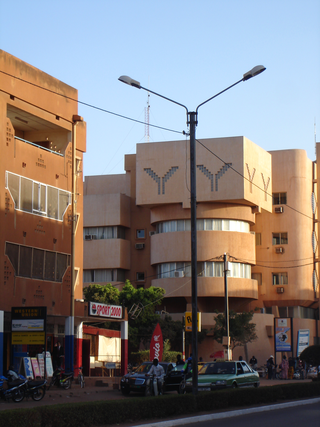
The economy of Burkina Faso is based primarily on subsistence farming and livestock raising. Burkina Faso has an average income purchasing-power-parity per capita of $1,900 and nominal per capita of $790 in 2014. More than 80% of the population relies on subsistence agriculture, with only a small fraction directly involved in industry and services. Highly variable rainfall, poor soils, lack of adequate communications and other infrastructure, a low literacy rate, and a stagnant economy are all longstanding problems of this landlocked country. The export economy also remained subject to fluctuations in world prices.

The gross domestic product (GDP) of Niger was $16.617 billion US dollars in 2023, according to official data from the World Bank. This data is based largely on internal markets, subsistence agriculture, and the export of raw commodities: foodstuffs to neighbors and raw minerals to world markets. Niger, a landlocked West African nation that straddles the Sahel, has consistently been ranked on the bottom of the Human Development Index, at 0.394 as of 2019. It has a very low per capita income, and ranks among the least developed and most heavily indebted countries in the world, despite having large raw commodities and a relatively stable government and society not currently affected by civil war or terrorism. Economic activity centers on subsistence agriculture, animal husbandry, re-export trade, and export of uranium.

Nigeria, officially the Federal Republic of Nigeria, is a country in West Africa. It is situated between the Sahel to the north and the Gulf of Guinea to the south in the Atlantic Ocean. It covers an area of 923,769 square kilometres (356,669 sq mi). With a population of more than 230 million, it is the most populous country in Africa, and the world's sixth-most populous country. Nigeria borders Niger in the north, Chad in the northeast, Cameroon in the east, and Benin in the west. Nigeria is a federal republic comprising 36 states and the Federal Capital Territory, where the capital, Abuja, is located. The largest city in Nigeria is Lagos, one of the largest metropolitan areas in the world and the largest in Africa.
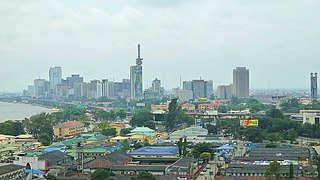
The economy of Nigeria is a middle-income, mixed economy and emerging market with expanding manufacturing, financial, service, communications, technology, and entertainment sectors. It is ranked as the 53rd-largest economy in the world in terms of nominal GDP, the fourth largest in Africa and the 27th-largest in terms of purchasing power parity.

The economy of Senegal is driven by mining, construction, tourism, fishing and agriculture, which are the main sources of employment in rural areas, despite abundant natural resources in iron, zircon, gas, gold, phosphates, and numerous oil discoveries recently. Senegal's economy gains most of its foreign exchange from fish, phosphates, groundnuts, tourism, and services. As one of the dominant parts of the economy, the agricultural sector of Senegal is highly vulnerable to environmental conditions, such as variations in rainfall and climate change, and changes in world commodity prices.
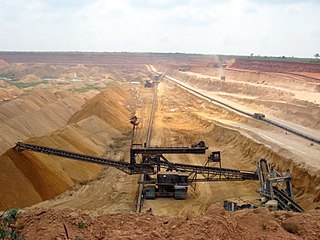
The economy of Togo has struggled greatly. The International Monetary Fund (IMF) ranks it as the tenth poorest country in the world, with development undercut by political instability, lowered commodity prices, and external debts. While industry and services play a role, the economy is dependent on subsistence agriculture, with industrialization and regional banking suffering major setbacks.

Fair trade is a term for an arrangement designed to help producers in developing countries achieve sustainable and equitable trade relationships. The fair trade movement combines the payment of higher prices to exporters with improved social and environmental standards. The movement focuses in particular on commodities, or products that are typically exported from developing countries to developed countries but is also used in domestic markets, most notably for handicrafts, coffee, cocoa, wine, sugar, fruit, flowers and gold.
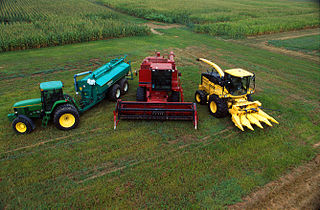
An agricultural subsidy is a government incentive paid to agribusinesses, agricultural organizations and farms to supplement their income, manage the supply of agricultural commodities, and influence the cost and supply of such commodities.
Macrotyloma geocarpum is also known as the ground bean, geocarpa groundnut, Hausa groundnut, or Kersting's groundnut. In French, it is often called la lentille de terre. M. geocarpum is an herbaceous annual plant and a crop of minor economic importance in sub-Saharan Africa, tolerant of drought, with a growth habit similar to that of the peanut.
African Petroleum Producers Organization (APPO) is an organization of African countries producing petroleum. It was created on January 27, 1987, in Lagos, Nigeria, to serve as a platform for cooperation and harmonization of efforts, collaboration, sharing of knowledge and skills among African oil producing countries. The headquarters of the organization is in Brazzaville in the Congo. The Organization changed its name from African Petroleum Producers Association to African Petroleum Producers Organization in 2017.

Agriculture is a major sector of the Nigerian economy, accounting for up to 35% of total employment in 2020. According to the FAO, agriculture remains the foundation of the Nigerian economy, providing livelihood for most Nigerians and generating millions of jobs. Along with crude oil, Nigeria relies on the agricultural products it exports to generate most of its national revenue. The agricultural sector in Nigeria comprises four sub-sectors: crop production, livestock, forestry, and fishing.

Benin is predominantly a rural society, and agriculture in Benin supports more than 70% of the population. Agriculture contributes around 35% of the country's gross domestic product (GDP) and 80% of export income. While the Government of Benin (GOB) aims to diversify its agricultural production, Benin remains underdeveloped, and its economy is underpinned by subsistence agriculture. Approximately 93% of total agricultural production goes into food production. The proportion of the population living in poverty is about 35.2%, with more rural households in poverty (38.4%) than urban households (29.8%). 36% of households depend solely upon agricultural (crop) production for income, and another 30% depend on crop production, livestock, or fishing for income.

Agriculture is the primary economic activity of a majority of Niger's 17 million citizens.

The economy of Ivory Coast is stable and currently growing, in the aftermath of political instability in recent decades. The Ivory Coast's economy is largely market-based and depends heavily on the agricultural sector. Almost 70% of the Ivorian people are engaged in some form of agricultural activity. The economy grew 82% in the 1960s, reaching a peak growth of 360% in the 1970s, but this proved unsustainable and it shrank by 28% in the 1980s and a further 22% in the 1990s. This decline, coupled with high population growth, resulted in a steady fall in living standards. The Gross national product per capita, now rising again, was about US$727 in 1996. It was substantially higher two decades before. Real GDP growth is expected to average 6.5% in 2024–25.

The Ministry of Commerce of Iran was the main organ of the Government in charge of the regulation and implementation of policies applicable to domestic and foreign trade. This includes:

The International Coffee Agreement (ICA) is an international commodity agreement between coffee producing countries and consuming countries. First signed in 1962, it was originally aimed at maintaining exporting countries' quotas and keeping coffee prices high and stable in the market, mainly using export quotas to steer the price. The International Coffee Organization, the controlling body of the agreement, represents all major coffee producing countries and most consuming countries.
The Northern Nigeria Marketing Board was a statutory commodity board authorized to fix producer prices of export commodities within the Northern region of Nigeria. It was also responsible for licensing buying agents and the purchasing export commodities in the region.
The Eastern Nigerian Marketing Board was a statutory monopoly responsible for the purchase and carriage to port of export commodities produced in the Eastern Region of Nigeria. In addition, to protect the producers and the industry from violent price fluctuations, the board made arrangements for producers to be paid a guaranteed price every season. A major aim of the board was to earn surplus reserves in order to fund government institutions in the region. As a result, it extended grants to the Eastern Nigeria Finance Corporation and provided the takeoff grant of University of Nigeria.
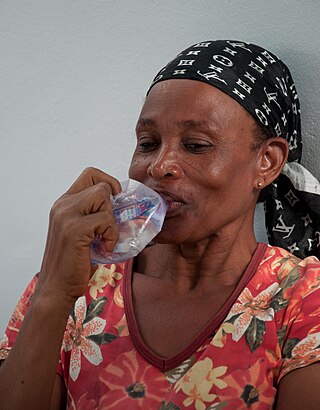
Water sachets or Sachet water is a common form of selling pre-filtered or sanitized water in plastic, heat sealed bags in parts of the global south, and are especially popular in Africa. Water sachets are cheaper to produce than plastic bottles, and easier to transport. In some Countries, water vendors refer to sachet water as "pure water".
Agriculture makes up a significant proportion of the Gambia's economy, comprising 25% of its GDP. About 75% of workers in the Gambia are employed within the agricultural industry. The main cash crops produced in the country are groundnuts, millet, sorghum, mangoes, corn, sesame, palm kernel, and cashews. The main staple crop produced is rice.